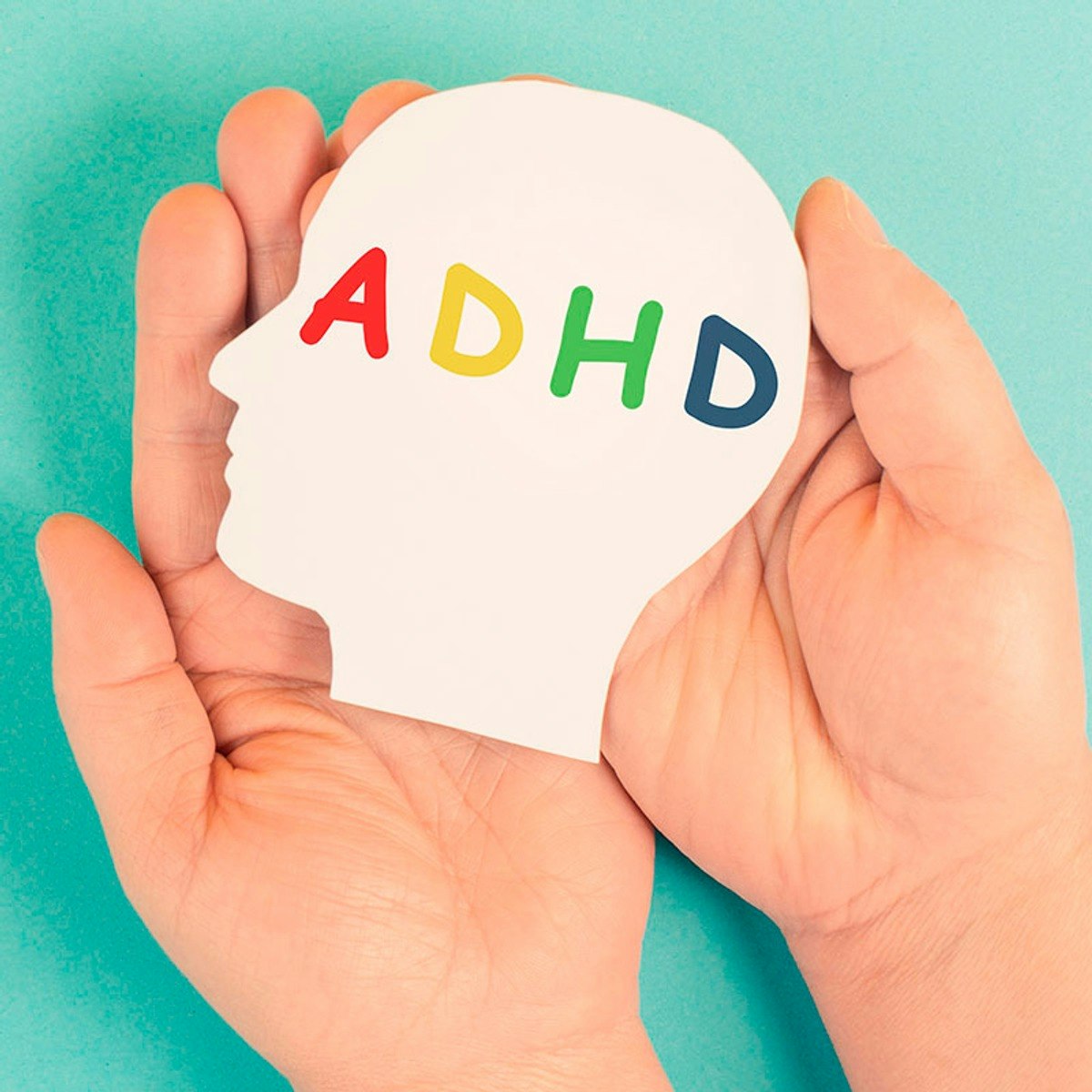School Psychologist
Embarking on a Career as a School Psychologist
School psychologists are vital members of educational teams, dedicated to helping students thrive academically, socially, emotionally, and behaviorally. These professionals apply their expertise in mental health, learning, and behavior to create supportive learning environments. They collaborate with students, families, educators, and administrators to foster connections between home, school, and the community. The work of a school psychologist is multifaceted, involving not only direct support and interventions for students but also consultation with teachers and parents to improve support strategies.
The role of a school psychologist extends beyond responding to crises; it also involves preventative work, addressing potential mental health concerns before they escalate. They are instrumental in identifying and resolving both long-term, chronic problems and short-term issues that students may encounter. This can involve everything from conducting psychological and academic assessments to developing and implementing programs that promote positive mental health and prevent issues like bullying. For individuals passionate about making a tangible difference in young people's lives and shaping positive educational experiences, a career as a school psychologist offers a rewarding and impactful path.
Introduction to School Psychology
School psychology is a specialized field that blends principles from educational psychology, developmental psychology, clinical psychology, and behavior analysis to address the diverse learning and mental health needs of children and adolescents within educational settings. Professionals in this field, known as school psychologists, work to support students' academic success, social-emotional development, and overall well-being. They are key players in creating safe, healthy, and supportive learning environments.
If you are considering a career that directly impacts the lives of students and contributes to a positive school culture, school psychology offers a unique and fulfilling opportunity. It’s a field that requires a deep understanding of psychological principles and a commitment to applying that knowledge to help young people navigate the complexities of their educational journey.
What is School Psychology?
At its core, school psychology involves applying psychological principles to enhance the educational experiences and outcomes of students. School psychologists are licensed professionals who work collaboratively with educators, parents, and other professionals to support students' academic and mental well-being. Their work encompasses a broad spectrum, from addressing learning and behavioral problems to fostering social skills and emotional health.
School psychologists don't just react to problems; they also engage in preventative measures to support student mental health before significant issues arise. They are integral to school systems, often consulting on systemic problems like bullying or helping teachers with classroom management strategies. This proactive and responsive approach makes them indispensable members of the educational community.
A career in school psychology can be incredibly rewarding, offering the chance to make a significant positive impact on the lives of children and adolescents. It's a dynamic field that often requires adapting to new challenges and a diverse range of student needs.
Key Roles and Responsibilities
The responsibilities of a school psychologist are diverse and critical to the functioning of a healthy school environment. A primary function is conducting psychological and academic assessments to understand students' strengths, weaknesses, and potential disabilities. This often involves evaluating eligibility for special education services as part of a multidisciplinary team.
School psychologists provide direct support and interventions, including individual and group counseling, to help students manage social, emotional, and behavioral difficulties. They work to promote positive behavior and mental wellness throughout the school, fostering an environment where students can thrive academically and emotionally. Collaboration is a cornerstone of their role; they consult with teachers to develop effective classroom management strategies and individualized support plans, and they partner with families to enhance home-school collaboration and connect them with community resources when needed.
Furthermore, school psychologists contribute to school-wide practices and policies by identifying systemic issues and developing interventions. This can include designing and implementing programs to prevent problems like bullying or substance abuse, and responding to crises within the school community. Their work aims to ensure that all students have the support necessary to succeed.
Impact on Student Well-being and Academic Success
School psychologists play a crucial role in fostering both the well-being and academic achievement of students. By addressing barriers to learning, such as emotional, social, or behavioral challenges, they help create an environment where students are more engaged and motivated to learn. Their interventions, whether individual, group, or school-wide, are designed to support students in developing essential skills like problem-solving, anger management, self-regulation, and resilience.
Research indicates that the strategies employed by school psychologists have a substantial positive impact on student outcomes. For instance, their work in promoting social-emotional learning has been linked to improved academic competence. By conducting assessments, they help identify students' specific needs and collaborate on individualized instruction and interventions. This tailored approach helps students overcome academic difficulties and reach their full potential.
Moreover, school psychologists contribute to a safer and more positive school climate by addressing issues like bullying and harassment, and by working to improve school connectedness. Their efforts in strengthening family-school partnerships also play a significant role, as parental involvement is a key factor in student success. Ultimately, school psychologists are vital in ensuring that students not only succeed academically but also develop into well-rounded, emotionally healthy individuals.
Educational Pathways
Embarking on a career as a school psychologist requires a significant commitment to education and training. The journey typically involves specific undergraduate coursework followed by advanced graduate studies and licensure. Understanding these educational requirements is the first step for aspiring professionals in this impactful field.
For those considering this path, it's helpful to know that the educational journey is designed to equip you with the specialized knowledge and practical skills necessary to support students effectively. While the road may seem long, each step builds a crucial foundation for a rewarding career.
Undergraduate Prerequisites
While a specific undergraduate major is not always mandated, a strong foundation in psychology, education, child development, or sociology is highly beneficial for admission into graduate school psychology programs. Coursework in areas such as developmental psychology, general psychology, statistics, research methods, and theories of education can provide essential background knowledge.
Many graduate programs also value practical experience working with children and adolescents. This could include volunteering at schools, recreational camps, mentoring programs, or daycare centers. Such experiences not only strengthen an application but also provide a real-world understanding of the challenges and rewards of working with young people. Taking introductory courses and seeking out relevant volunteer opportunities can be a great way to explore your interest in the field and prepare for advanced study.
These foundational courses can introduce you to the core concepts you will build upon in graduate school.
Graduate Programs (Master's, Ed.S., or Ph.D.)
To practice as a school psychologist, a graduate degree is essential. The most common path is a Specialist-level degree, such as an Education Specialist (Ed.S.) degree, which typically requires at least 60 graduate semester hours and takes about three years to complete, including a supervised internship. This degree is considered the national standard for entry into the field and allows for comprehensive practice in schools.
A Master's degree in school psychology can also be a pathway, though in many states, an Ed.S. or its equivalent in credit hours is the minimum for licensure. Some individuals pursue a doctoral degree (Ph.D., Psy.D., or Ed.D.), which involves at least 90 graduate semester hours and typically takes five to six years, also including a supervised internship. A doctoral degree is often necessary for those interested in academia, research, or certain specialized roles.
Graduate programs in school psychology provide specialized training in areas such as assessment, intervention, consultation, mental health, learning theories, and research. They also include extensive practical experience through practicums and a year-long supervised internship, usually around 1200-1500 hours. Choosing a program approved or accredited by organizations like the National Association of School Psychologists (NASP) can be beneficial, as it may streamline the licensure process in many states.
For those looking to delve into the specific area of how learning occurs, which is central to educational psychology, the following courses provide a solid introduction. Understanding these principles is crucial for designing effective interventions.
These books offer deeper insights into child development and learning, which are core to the practice of school psychology.
Licensing and Certification Requirements
Becoming a licensed or certified school psychologist involves meeting state-specific requirements, which typically include earning an appropriate graduate degree, completing a supervised internship, and passing a national or state examination. Most states require a minimum of 60 graduate-level credits, often culminating in an Ed.S. degree or equivalent. The Praxis School Psychologist exam is a common requirement for licensure in many states.
The National Association of School Psychologists (NASP) offers the Nationally Certified School Psychologist (NCSP) credential. While not a license to practice (which is granted by states), the NCSP is recognized by many states and can simplify the process of obtaining state licensure or certification, sometimes fulfilling part or all of the state's requirements. To become an NCSP, individuals must graduate from a NASP-approved program, complete a 1200-hour internship (with at least 600 hours in a school setting), pass the Praxis School Psychologist exam, and adhere to NASP's professional ethics. Maintaining the NCSP requires ongoing professional development.
It is crucial for aspiring school psychologists to research the specific licensure requirements in the state(s) where they intend to work, as these can vary. Some states may have additional requirements, such as specific coursework or background checks. Information on state-specific requirements can often be found through the state's Department of Education or Board of Psychologist Examiners, as well as through resources provided by NASP. For instance, in California, school psychologists typically need a Master's degree or higher in psychology or a related field, completion of 60 semester hours of postgraduate work in pupil personnel services, and supervised professional experience. In Texas, the credential is known as a Licensed Specialist in School Psychology (LSSP).
Core Competencies and Skills
To excel as a school psychologist, a unique blend of technical skills and interpersonal qualities is necessary. These professionals must be adept at understanding complex human behavior, applying evidence-based practices, and navigating the intricate dynamics of the school environment. Success in this field hinges on the ability to not only assess and diagnose but also to connect with, support, and empower students, families, and educators.
For those drawn to this career, cultivating these competencies is as important as meeting the educational requirements. It is the skillful application of this knowledge that truly makes a difference in the lives of students.
Assessment and Intervention Techniques
A fundamental competency for school psychologists is proficiency in assessment and intervention. This involves conducting comprehensive psychological and academic evaluations to identify students' learning, behavioral, and emotional needs. These assessments help determine eligibility for special education services and inform the development of appropriate interventions. School psychologists utilize a variety of assessment tools and techniques, interpreting data to understand a student's strengths and areas for growth.
Based on these assessments, school psychologists design and implement evidence-based interventions. These can range from individual or group counseling to academic support strategies and behavior management plans. They are skilled in applying techniques to address a wide array of issues, such as learning disabilities, attention problems, anxiety, depression, and social skills deficits. Progress monitoring is also a key component, allowing psychologists to evaluate the effectiveness of interventions and make adjustments as needed. The ability to translate assessment data into practical and effective interventions is crucial for helping students succeed.
Online courses can provide a foundational understanding of various psychological conditions and assessment approaches.
These books offer valuable knowledge for understanding and diagnosing learning challenges.
Behavioral and Emotional Support Strategies
School psychologists are experts in providing behavioral and emotional support to students. They utilize a range of strategies to help students develop positive behaviors, coping mechanisms, and social-emotional skills. This includes teaching pro-social behaviors, anger management, conflict resolution, and self-regulation techniques. They often work with students individually or in small groups to address specific emotional challenges like anxiety, depression, or trauma.
A key aspect of this competency is the ability to develop and implement behavior intervention plans, often as part of an Individualized Education Program (IEP). These plans are tailored to the individual needs of students and are based on careful assessment of behavior patterns and underlying causes. School psychologists also play a role in promoting overall mental wellness within the school by developing and implementing school-wide programs that focus on issues such as bullying prevention and fostering a positive school climate. Their expertise helps create a supportive environment where students feel safe and understood, which is essential for both their emotional well-being and academic progress.
The following courses explore strategies for managing challenging emotions and behaviors, which are critical skills for school psychologists.
This book provides a framework for understanding and promoting emotional well-being in students.
Collaboration with Educators and Parents
Effective collaboration is a cornerstone of a school psychologist's practice. They work closely with teachers, administrators, parents, and other school professionals to create a supportive network for students. With educators, school psychologists consult on classroom management strategies, differentiate instruction to meet diverse learning needs, and help develop and implement academic and behavioral interventions. They provide teachers with insights into student behavior and learning styles, empowering them to create more effective and inclusive classroom environments.
Partnering with families is equally important. School psychologists help parents understand their child's learning and mental health needs, navigate the special education process if necessary, and develop strategies to support their child's development at home. They facilitate communication between home and school, ensuring that everyone is working together towards the student's success. This collaborative approach extends to working with community service providers to coordinate additional support for students and families when needed. Strong interpersonal and communication skills are essential for building these vital partnerships.
These resources focus on working with children who have specific needs and fostering effective communication and collaboration.
This book is a helpful guide for parents supporting children with reading difficulties, a common area of collaboration.
Career Progression
The career path for a school psychologist offers various avenues for growth and specialization. From initial roles gaining practical experience to more senior positions with broader responsibilities, there are opportunities to expand one's impact within the educational system. Understanding these potential trajectories can help aspiring and early-career professionals plan their development in the field.
For those looking to build a long-term career, school psychology provides a framework for continuous learning and advancement. The skills and experiences gained can also open doors to related fields.
Entry-Level Roles
Upon completing their graduate education and obtaining initial licensure or certification, individuals typically begin their careers as school psychologists, often working directly within K-12 public or private schools. Some may start with an internship, which is a required component of most graduate programs and provides intensive supervised experience. In these initial roles, school psychologists apply their foundational knowledge and skills under the guidance of more experienced professionals or as part of a school's student support services team.
Entry-level responsibilities often involve conducting assessments, providing counseling to students, consulting with teachers and parents, and participating in the development of Individualized Education Programs (IEPs). This period is crucial for honing practical skills, gaining familiarity with school systems and diverse student populations, and building a professional network. While some districts may differentiate titles, the core functions focus on direct service delivery to students and collaboration with the school community.
These courses can provide a good starting point for understanding child development and learning theories, crucial for entry-level roles.
Mid-Career Opportunities
As school psychologists gain experience and demonstrate expertise, opportunities for advancement and specialization emerge. Mid-career professionals may take on leadership roles within their school or district, such as becoming a lead psychologist. In such a capacity, they might supervise or mentor newer school psychologists, coordinate psychological services across multiple schools, or take a leading role in developing and implementing district-wide initiatives related to mental health, behavior support, or academic intervention.
Other mid-career paths can involve specializing in particular areas of practice, such as early childhood assessment, autism spectrum disorders, crisis intervention, or working with specific student populations. Some school psychologists may choose to deepen their expertise through advanced training or certifications in these specialized areas. There might also be opportunities to contribute to research, program evaluation, or policy development at the district or state level. This stage of the career often involves a greater degree of autonomy and influence on the broader educational system.
For those interested in the cognitive aspects of development and learning disabilities, these resources can be beneficial.
Advanced Roles
With significant experience and often further education (such as a doctoral degree), school psychologists can progress to advanced roles with broader systemic impact. These may include positions as district-level coordinators or directors of psychological services, special education, or student support services. In these capacities, they oversee programs, manage budgets, develop policies, and provide leadership to a team of school psychologists and other support staff.
Other advanced career paths include working in academia as university faculty, training future school psychologists, and conducting research. Some experienced school psychologists may establish private practices, providing assessment, consultation, and therapy services to children, families, and schools on a contractual basis. Opportunities may also exist in state departments of education, research institutions, or organizations that advocate for children's mental health and educational rights. These advanced roles often require strong leadership, administrative, and research skills, in addition to deep expertise in school psychology.
Work Environment and Challenges
The daily life of a school psychologist is both rewarding and demanding. Understanding the typical settings where they work, the common stressors they face, and the ethical considerations that guide their practice is crucial for anyone considering this profession. It's a career that requires resilience, adaptability, and a strong commitment to supporting students.
If you are exploring this path, being aware of the realities of the work environment will help you make an informed decision and prepare for the challenges ahead. While the work can be intense, the opportunity to make a difference is a powerful motivator for many.
Typical Settings
The vast majority of school psychologists, approximately 81-85%, work in public K-12 schools. However, their expertise is also valued in a variety of other settings. These include private schools, charter schools, and preschools. Some school psychologists work in school district administration offices, contributing to policy and program development.
Beyond traditional school settings, school psychologists may find employment in universities, either as faculty in school psychology training programs or providing services in university counseling centers. Other environments include school-based health and mental health centers, community-based day treatment or residential clinics, and hospitals. Some experienced school psychologists also work in juvenile justice programs or establish their own independent private practices, offering consultation and direct services. While the specific day-to-day tasks might vary by setting, the core mission of supporting student success remains consistent.
Common Stressors and Workload
The role of a school psychologist, while deeply rewarding, comes with its share of stressors and a demanding workload. One significant challenge is the high student-to-school-psychologist ratio in many areas. The National Association of School Psychologists (NASP) recommends a ratio of 1 psychologist to 500 students, but the national average has been reported to be much higher, sometimes exceeding 1 to 1200 or even 1 to 2000 in some states. This can lead to feeling overworked and struggling to provide adequate services to all students in need.
School psychologists often deal with students facing significant challenges, including learning disabilities, behavioral issues, emotional distress, trauma, and crises like suicidal ideation. The emotional weight of this work can lead to "emotional depletion" or fatigue, and burnout is a recognized risk in the profession. Studies conducted even before the COVID-19 pandemic indicated that a high percentage of school psychologists reported feeling burnt out at times. The pandemic itself exacerbated the mental health crisis among young people, further increasing the demands on school psychologists. Additionally, school psychologists may face pressure from various stakeholders, navigate complex ethical dilemmas, and deal with limited resources, all of which can contribute to job stress.
Managing stress and preventing burnout are crucial for longevity and effectiveness in this field. Courses focusing on emotional well-being and resilience can be beneficial.
Understanding emotional intelligence and resilience can be helpful for professionals in high-stress roles.
Ethical Dilemmas and Decision-Making
School psychologists regularly encounter complex ethical dilemmas that require careful consideration and sound decision-making. Issues of confidentiality are paramount, as they handle sensitive information about students and their families. They must balance the student's right to privacy with the need to share information appropriately with parents, teachers, and other professionals involved in the student's care, as well as legal obligations such as mandatory reporting of suspected child abuse or neglect.
Navigating issues related to informed consent, particularly when working with minors, is another common ethical challenge. School psychologists must ensure that students and their parents understand the nature and purpose of assessments and interventions. They also grapple with dilemmas related to assessment practices, such as ensuring fairness and cultural sensitivity in testing, and making appropriate recommendations for special education services. The NASP Principles for Professional Ethics provide a guiding framework for navigating these complexities, emphasizing respect for the dignity of persons, responsible caring, honesty and integrity in professional relationships, and responsibility to schools, families, communities, the profession, and society. Adherence to these ethical principles, alongside relevant school law, is fundamental to effective and responsible practice.
Impact of Technology
Technology is increasingly shaping the landscape of school psychology, offering new tools and approaches for assessment, intervention, and collaboration. From digital assessment platforms to teletherapy services, technological advancements are influencing how school psychologists support students. Understanding these trends is important for both current practitioners and those entering the field.
While technology offers many benefits, it also presents new challenges and ethical considerations that school psychologists must navigate. Staying informed about these developments is key to leveraging technology effectively and responsibly.
Digital Assessment Tools
The use of digital tools for assessment is becoming more prevalent in school psychology. These tools can range from computerized versions of traditional standardized tests to innovative platforms that offer interactive and engaging ways to evaluate students' cognitive abilities, academic skills, and social-emotional functioning. Digital assessments can offer advantages such as automated scoring, quicker generation of reports, and potentially more precise measurement of certain skills.
However, the adoption of digital assessment tools also requires careful consideration. School psychologists must ensure that these tools are valid, reliable, and appropriate for the specific student population and assessment purpose. They also need to be mindful of issues related to digital equity, ensuring that all students have fair access to and experience with the technology used in assessments. Training in the administration and interpretation of these digital tools is essential for their effective and ethical use. As technology evolves, school psychologists will need to stay updated on the latest assessment resources and best practices for their implementation.
Courses on how digital tools affect well-being can offer insights into the broader impact of technology on students.
Teletherapy and Remote Services
Teletherapy and the provision of remote psychological services have gained significant traction, particularly accelerated by recent global events. For school psychologists, this can involve conducting assessments, providing counseling, and consulting with teachers and parents via video conferencing or other secure digital platforms. Teletherapy offers the potential to increase access to services, especially for students in remote or underserved areas, or for those who may have difficulty attending in-person sessions.
While offering benefits in terms of accessibility and flexibility, remote service delivery also presents unique challenges. School psychologists must ensure the privacy and security of digital communications, adapt their intervention techniques for a virtual environment, and address potential issues related to technology access and digital literacy for students and families. Establishing rapport and engagement can also require different approaches in a remote setting. Professional guidelines and ethical standards for telepsychology are continuing to evolve, and practitioners need to stay informed to provide effective and appropriate remote services.
Data-Driven Interventions
Technology plays a crucial role in facilitating data-driven interventions in school psychology. School psychologists use various software and digital platforms to collect, manage, and analyze student data related to academic performance, behavior, and social-emotional well-being. This data can help identify students at risk, monitor progress over time, and evaluate the effectiveness of interventions and programs.
For example, progress monitoring tools can allow psychologists and teachers to track a student's response to a specific academic or behavioral intervention, providing visual representations of progress and enabling timely adjustments to the support plan. School-wide data systems can help identify trends and patterns, informing the development of targeted prevention programs or systemic changes. The ability to effectively use data management and analysis tools is becoming an increasingly important skill for school psychologists, enabling them to make more informed decisions and demonstrate the impact of their services.
Global Perspectives
The field of school psychology, while sharing common goals of supporting student success, exhibits variations in its practice across different countries and cultural contexts. Understanding these global perspectives can enrich the knowledge of practitioners and foster international collaboration. It also highlights the importance of cultural sensitivity in applying psychological principles.
Exploring how school psychology is approached worldwide can offer valuable insights and innovative ideas for practitioners everywhere.
Variations in School Psychology Practices Worldwide
The roles, training, and scope of practice for school psychologists can differ significantly from one country to another. In some nations, school psychology may be a well-established profession with clear credentialing pathways and a strong presence in educational systems. In others, the field might be emerging, with services provided by professionals with more general psychology or education backgrounds. The specific focus of school psychologists can also vary; for instance, some countries may place a greater emphasis on psychoeducational assessment for special education placement, while others might prioritize mental health promotion and early intervention for all students.
Cultural values and societal views on education and mental health heavily influence how school psychology services are conceptualized and delivered. For example, approaches to discipline, parent involvement, and the expression of emotional difficulties can vary widely across cultures, requiring school psychologists to adapt their practices accordingly. Understanding these international variations is important for professionals who may work in diverse cultural settings or collaborate with colleagues from other countries.
Cross-Cultural Challenges
Working in diverse cultural contexts presents unique challenges for school psychologists. Assessment tools and intervention strategies developed in one cultural context may not be directly applicable or effective in another. There is a risk of cultural bias in standardized tests, which may not accurately reflect the abilities and knowledge of students from different linguistic or cultural backgrounds. School psychologists must be skilled in selecting culturally appropriate assessment methods and interpreting results with an understanding of cultural influences on behavior and learning.
Communication can also be a challenge, especially when working with students and families who speak different languages or have different cultural norms around help-seeking and discussing personal issues. Building trust and rapport across cultural differences is essential for effective collaboration. Moreover, school psychologists need to be aware of their own cultural assumptions and biases to avoid misinterpreting student behavior or imposing culturally inappropriate interventions. Developing multicultural competence, which involves ongoing learning, self-reflection, and adaptation of practices, is crucial for ethical and effective school psychology in a globalized world.
These courses touch on the importance of understanding diverse backgrounds and promoting inclusion, which are key in cross-cultural contexts.
record:31j0gd
Opportunities for International Collaboration
Despite the variations and challenges, there are growing opportunities for international collaboration in the field of school psychology. Professional organizations, such as the International School Psychology Association (ISPA), play a key role in fostering connections, sharing research, and promoting best practices globally. Conferences, workshops, and publications provide platforms for school psychologists from different countries to exchange knowledge and experiences.
Collaborative research projects can help develop a more culturally nuanced understanding of child development, learning, and mental health, leading to the development of more universally applicable assessment tools and intervention strategies. Student and faculty exchange programs between universities can also enrich training and broaden perspectives. As global interconnectedness increases, such international collaborations are vital for advancing the field and improving services for children and youth worldwide. These partnerships can help address global challenges in education and mental health, such as promoting inclusive education, responding to crises, and supporting the well-being of students in diverse cultural settings.
Ethical and Legal Considerations
The practice of school psychology is guided by a robust framework of ethical principles and legal mandates designed to protect the rights and well-being of students. Navigating these considerations is a critical aspect of the profession, requiring ongoing attention and professional judgment. Adherence to these standards ensures that school psychologists provide services in a responsible, fair, and lawful manner.
For anyone in or entering the field, a thorough understanding of these ethical and legal obligations is not just recommended, but essential for competent practice.
Confidentiality and Student Rights
Confidentiality is a cornerstone of the psychologist-client relationship, and this principle extends to the work of school psychologists with students. They are ethically and often legally bound to protect the private information shared by students. However, the application of confidentiality in a school setting can be complex. School psychologists must navigate the balance between a student's right to privacy and the need to share information with parents or guardians, especially for minors, as well as with teachers and other school staff who have a legitimate educational interest.
Students have a right to understand the limits of confidentiality from the outset of any professional relationship. School psychologists must clearly explain when and with whom information might be shared, such as in situations involving risk of harm to the student or others, or when legally required. Respecting student autonomy, to the extent appropriate for their developmental level, is also a key consideration. This includes involving students in decisions about their own psychological services whenever possible. Understanding and upholding student rights are fundamental to building trust and providing ethical care.
Mandatory Reporting Obligations
School psychologists, like many professionals who work with children, are mandated reporters. This means they have a legal obligation to report suspected cases of child abuse or neglect to the appropriate child protective services or law enforcement agencies. This duty to report typically overrides confidentiality obligations. Understanding the specific laws and procedures for reporting in their jurisdiction is crucial for school psychologists.
This responsibility can present challenging situations, requiring careful judgment and adherence to legal and ethical guidelines. School psychologists must be trained to recognize the signs of abuse and neglect and understand the reporting process. The primary concern in these situations is always the safety and well-being of the child. While making a report can be difficult and may impact the therapeutic relationship, it is a critical legal and ethical responsibility designed to protect vulnerable children.
Navigating Legal Frameworks (e.g., IDEA, FERPA)
School psychologists must be well-versed in various federal and state laws that govern education and the provision of psychological services in schools. Two key federal laws are the Individuals with Disabilities Education Act (IDEA) and the Family Educational Rights and Privacy Act (FERPA). IDEA mandates that public schools provide a free appropriate public education (FAPE) to eligible children with disabilities and outlines procedures for identification, evaluation, and the development of Individualized Education Programs (IEPs). School psychologists play a critical role in these processes, conducting assessments and contributing to IEP teams.
FERPA protects the privacy of student education records. School psychologists must understand what constitutes an education record, who has access to these records, and the procedures for maintaining and disclosing them. This includes understanding parental rights to inspect and review records and to request amendments. Navigating these legal frameworks requires ongoing professional development to stay current with changes in legislation and regulations. Compliance with these laws is essential for protecting student and family rights and ensuring ethical practice. IDEA and FERPA are complex pieces of legislation that directly impact the daily work of school psychologists.
Frequently Asked Questions (FAQ)
Many individuals exploring a career in school psychology have common questions about the profession. This section aims to provide concise answers to some of the most frequently asked questions, offering practical information to aid in decision-making.
If you have further questions, exploring resources from professional organizations like the National Association of School Psychologists (NASP) can provide additional valuable insights.
What is the average salary for school psychologists?
The salary for school psychologists can vary based on factors such as geographic location, level of experience, degree level, and the type of school district or setting. According to the U.S. Bureau of Labor Statistics (BLS), the median annual wage for psychologists (a category that includes school psychologists) was $92,740 in May 2023. The BLS specifically reports on "Psychologists, All Other," which includes school psychologists, and for this group, the median annual wage was $117,750 in May 2023. Data from the National Association of School Psychologists (NASP) indicated that the median salary for full-time, school-based practitioners in the U.S. during the 2019-2020 school year was $74,000. More recent data from 2024 suggests an average school psychologist salary in the U.S. is around $84,940, with a typical range between $70,250 and $107,400. Some sources indicate the national average or mean annual wage is around $87,550, with potential for higher earnings based on experience and location; for example, 25% of employed school psychologists make over $103,890. Salaries can be higher in certain regions and for those with more experience or doctoral degrees.
Can I work part-time as a school psychologist?
Yes, part-time opportunities for school psychologists can exist, although the availability may vary depending on the needs of school districts and other employers. Some school psychologists may choose part-time work for flexibility or to balance other commitments. Part-time roles might involve working fewer days per week or serving smaller schools or specific programs on a limited basis. It's also possible for school psychologists in private practice to set their own hours, which could include part-time work. Those interested in part-time positions should inquire directly with school districts or search job boards that may list such opportunities.
How does school psychology differ from counseling?
While both school psychologists and school counselors work to support students' well-being and success, their roles and training have distinct differences. School counselors typically provide broader services to the entire student population, focusing on academic guidance, career development, and personal/social skill development. They might help students with course selection, college applications, and general coping skills.
School psychologists, on the other hand, often have a more specialized focus on assessing and addressing learning, behavioral, and mental health issues that can impact educational functioning. They conduct psychological and academic assessments, diagnose disabilities, develop intervention plans, and provide more intensive counseling or therapeutic services to students with specific needs. School psychologists are also more involved in special education processes and data-driven decision-making at the school or district level. While counselors primarily work directly with students, school psychologists often act as liaisons between students, teachers, and families. The educational requirements also differ, with school psychologists typically needing at least a specialist-level degree (Ed.S.) or doctorate, whereas school counselors usually require a master's degree in counseling.
What are the job prospects in this field?
The job outlook for school psychologists is generally very positive. There is a well-documented nationwide shortage of school psychologists, meaning that demand for qualified professionals is high across many parts of the United States. The National Association of School Psychologists (NASP) highlights this shortage, noting that the actual student-to-psychologist ratio in many states is significantly higher than the recommended ratio of 500:1. This shortage, coupled with an increasing awareness of the importance of mental health services in schools, suggests strong employment opportunities for new graduates and experienced practitioners alike. Some projections indicate a continued need for school psychologists in the coming years. The U.S. Bureau of Labor Statistics projects employment growth for psychologists overall, and school psychology is often cited as a field with good job prospects. While one BLS projection for "school psychologists" specifically showed a modest 1% growth from 2022 to 2032, it's important to consider this in the context of the existing significant shortages.
Is licensure required in all states?
Yes, to practice as a school psychologist in public schools in the United States, individuals must hold a state-issued license or certification. The specific requirements for licensure vary by state but generally include completion of an approved graduate program in school psychology (typically at the specialist or doctoral level), a supervised internship, and passing a state or national examination, such as the Praxis School Psychologist exam. The credential may be issued by the state's Department of Education or a Board of Psychology, and the title (e.g., "Licensed School Psychologist," "Certified School Psychologist," "Licensed Specialist in School Psychology") can also vary. It is essential for individuals to research the specific requirements of the state in which they plan to work. The National Association of School Psychologists (NASP) provides resources on state licensure requirements and also offers the Nationally Certified School Psychologist (NCSP) credential, which is recognized by many states and can facilitate the licensure process.
How to handle burnout in high-stress environments?
Burnout is a significant concern in high-stress professions like school psychology. Strategies to manage and prevent burnout are crucial for long-term well-being and effectiveness. Self-care is paramount; this includes maintaining a healthy work-life balance, ensuring adequate sleep, nutrition, and exercise, and engaging in hobbies and activities outside of work that are relaxing and rejuvenating. Mindfulness practices, meditation, and other stress-reduction techniques can also be beneficial.
Setting realistic boundaries is important. This involves managing workload effectively, learning to say no to additional responsibilities when overextended, and protecting personal time. Seeking peer support and supervision is also vital. Connecting with other school psychologists or mental health professionals can provide a space to share experiences, challenges, and coping strategies. Regular supervision or consultation can offer guidance and support in managing difficult cases and navigating workplace stressors.
Continuous professional development can help practitioners feel more competent and engaged, but it's also important to recognize when to seek help for oneself. If symptoms of burnout become overwhelming, seeking support from a mental health professional is a sign of strength. Finally, advocating for systemic changes within schools and districts to improve working conditions, such as addressing high caseloads and providing adequate resources, can also contribute to reducing burnout across the profession.
Exploring resources on stress management and emotional well-being can provide practical strategies. OpenCourser offers a variety of courses in Personal Development that may be helpful.
Conclusion
The path to becoming a school psychologist is one of dedicated learning and compassionate practice. These professionals are indispensable in fostering environments where students can achieve academic success and cultivate robust social-emotional well-being. From individual assessments and interventions to broad, systemic support and collaboration with educators and families, school psychologists significantly influence the educational landscape. While the career presents challenges, including demanding workloads and navigating complex ethical terrain, the opportunity to positively impact young lives offers profound personal and professional fulfillment. For those who are ambitious, empathetic, and committed to making a difference, a career as a school psychologist provides a unique and rewarding avenue to contribute meaningfully to the development and success of the next generation. As the need for mental health support in schools continues to grow, the role of the school psychologist will only become more critical.























